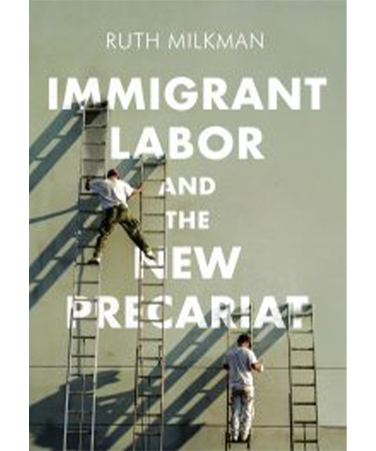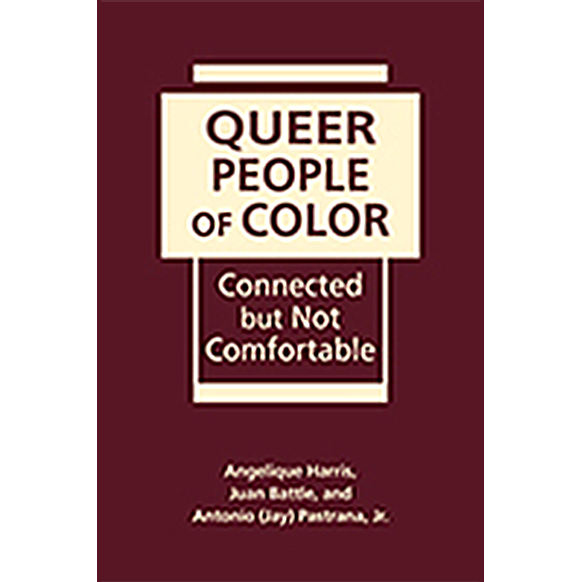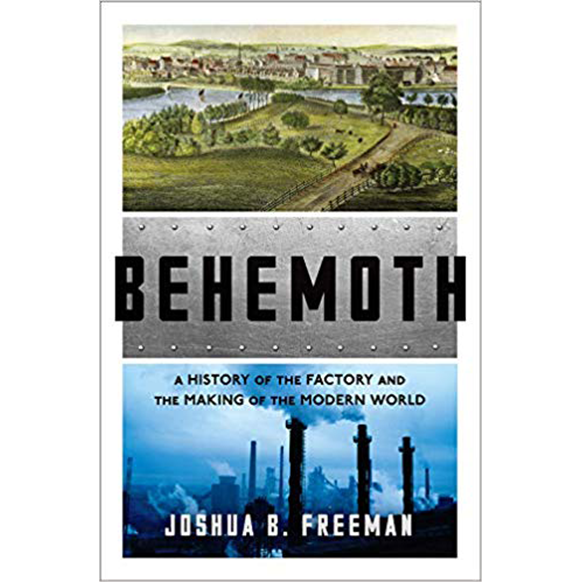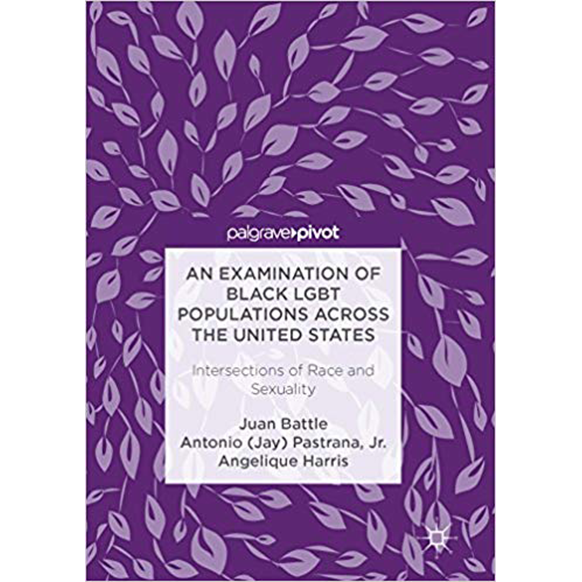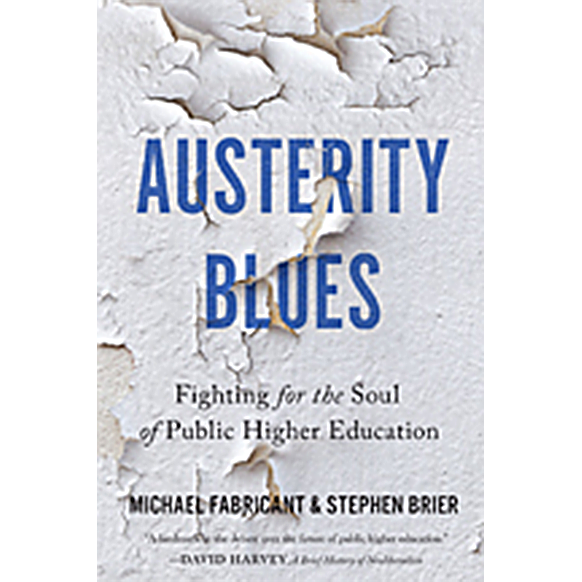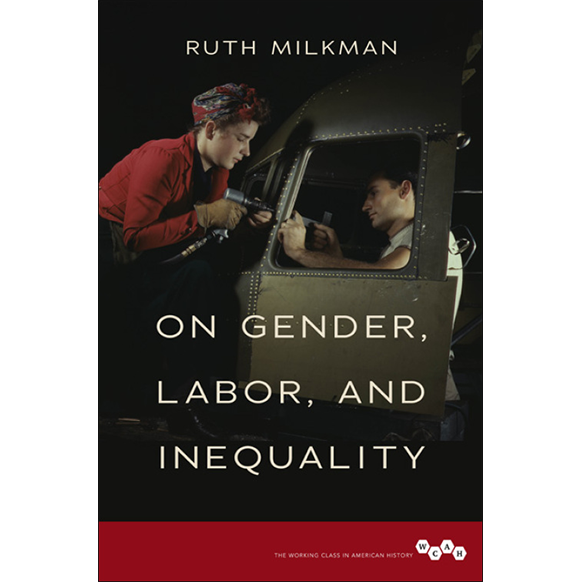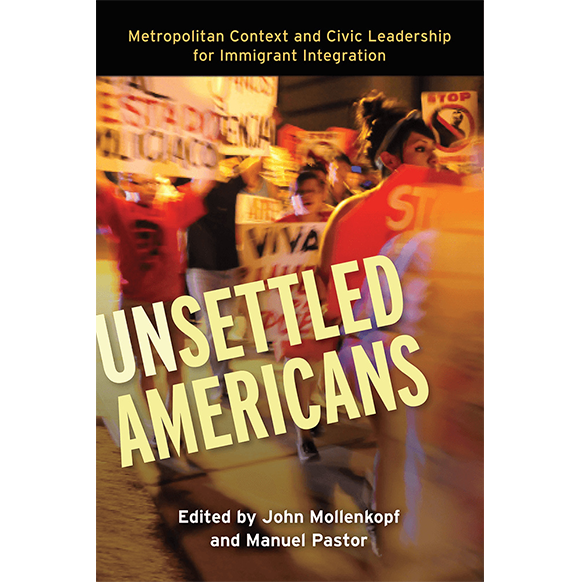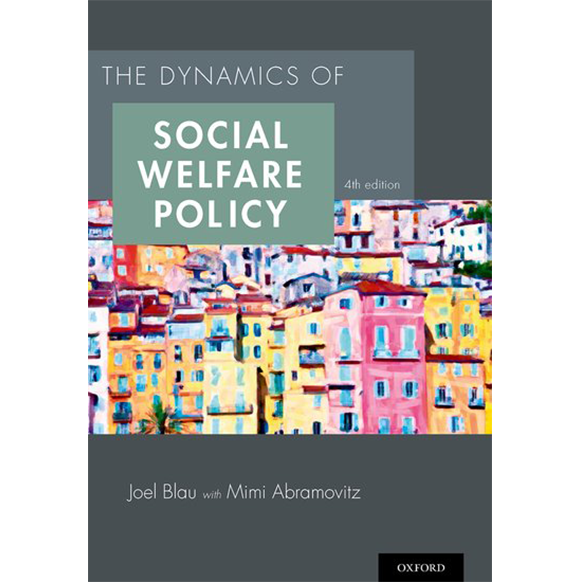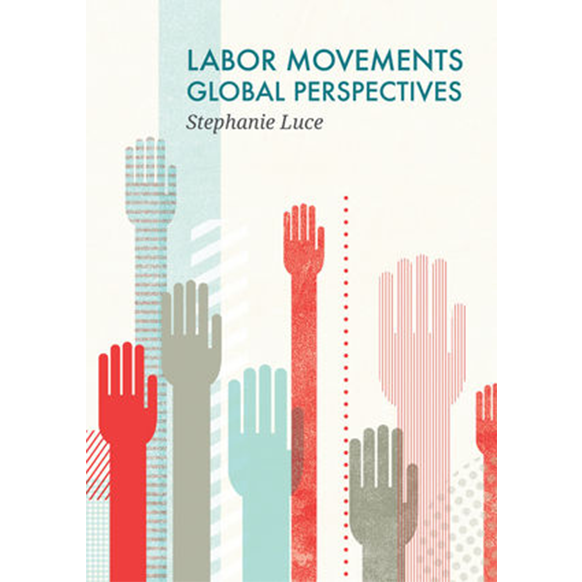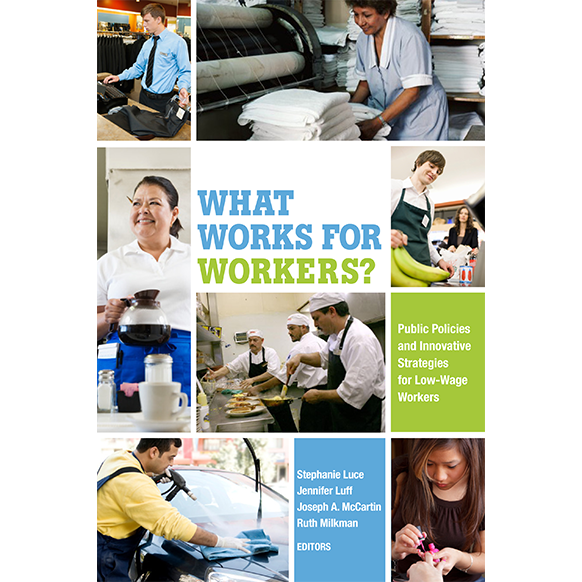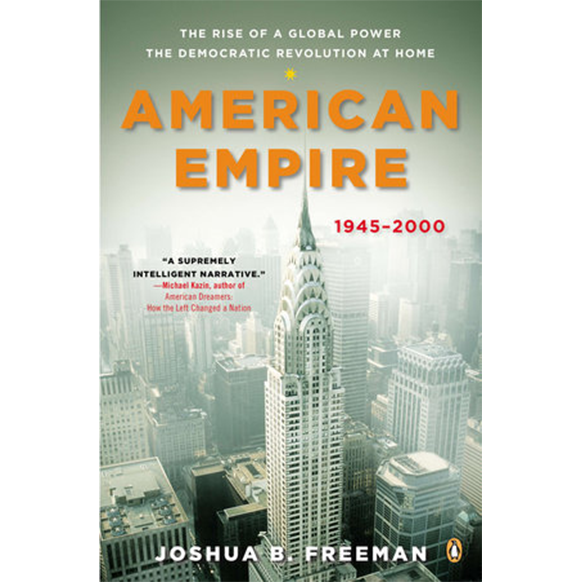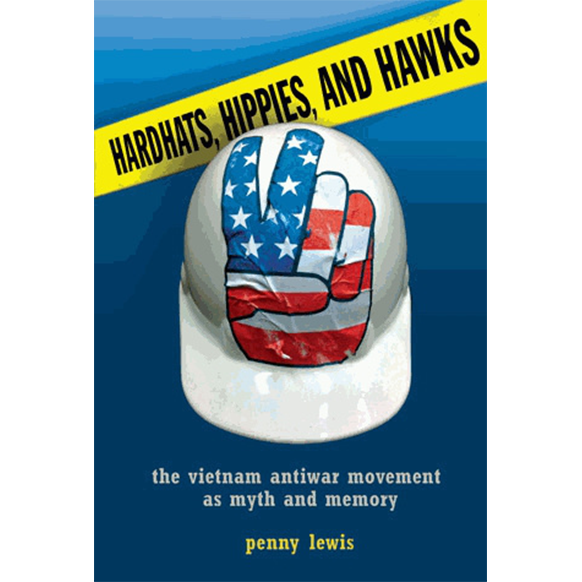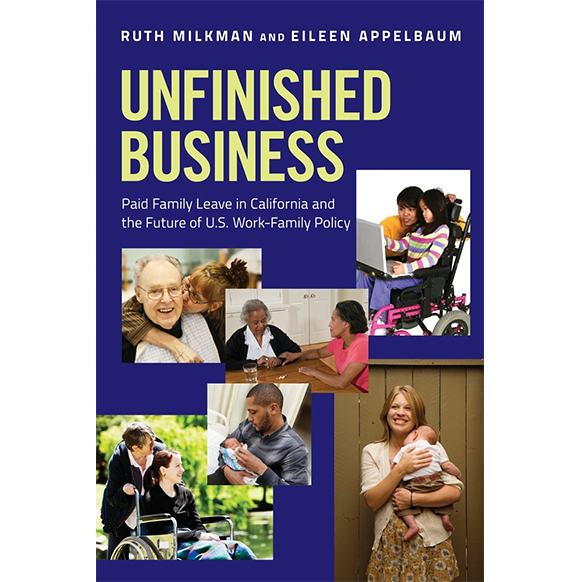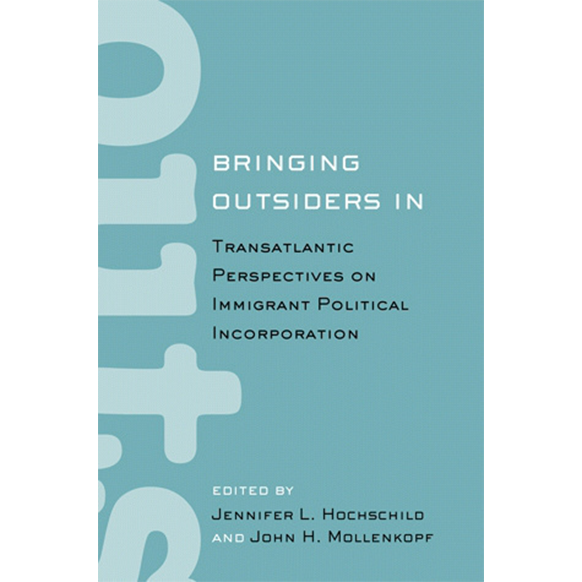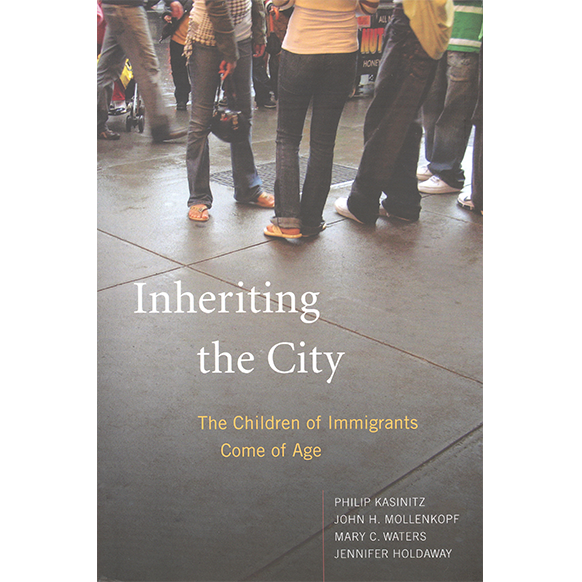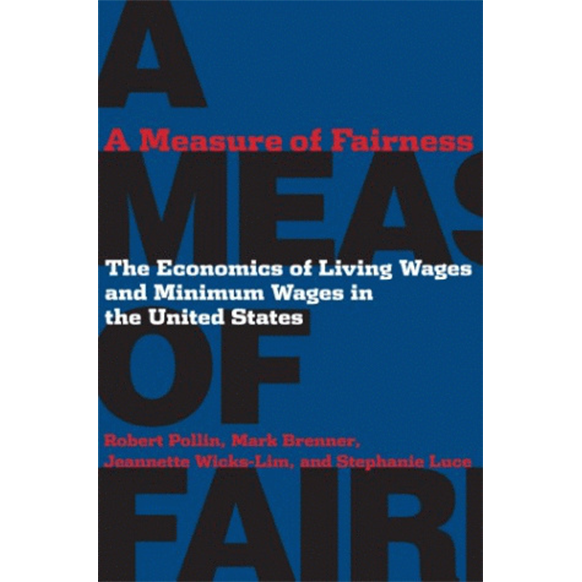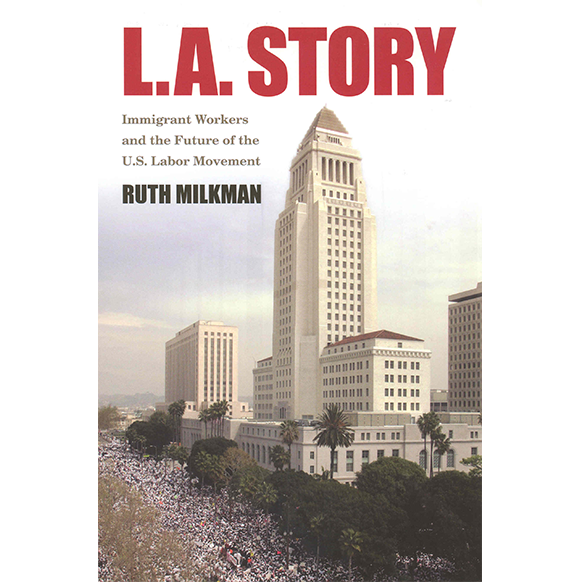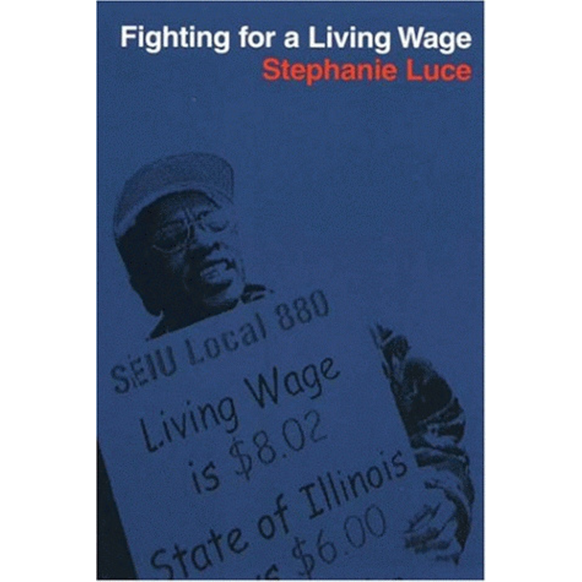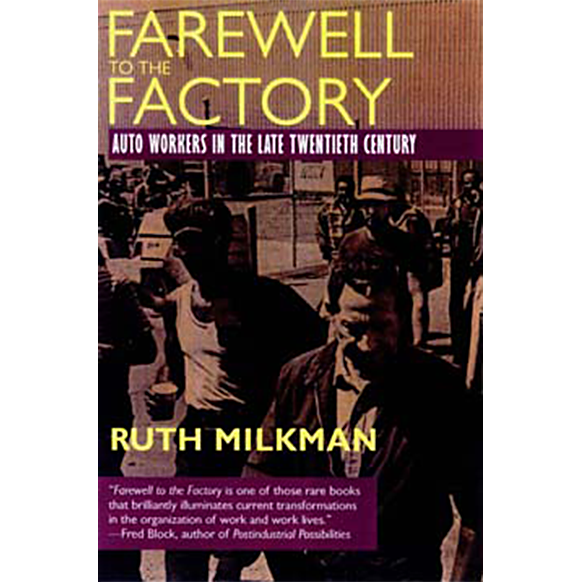The School of Labor and Urban Studies has a faculty that includes some of the most distinguished social science scholars in the nation. Between them, they have published over 85 books, research studies, and important essays. Below you will find the major works of our full-time and consortial faculty. Click on a book image for more information.
The SLU Book Shelf: Publications of Our Faculty
Immigration Matters
Movements, Visions, and Strategies for a Progressive Future
Edited by: Ruth Milkman, Deepak Bhargava, and Penny Lewis
The New Press, 2021
“Immigration Matters draws together the leading voices on immigration and immigrant rights to offer a cogent pathway forward to fix a tragically broken immigration system.” —Douglas S. Massey, Princeton University
During the past decade, right-wing nativists have stoked popular hostility to the nation’s foreign-born population, forcing the immigrant rights movement into a defensive posture. In the Trump years, preoccupied with crisis upon crisis, advocates had few opportunities to consider questions of long-term policy or future strategy. Now is the time for a reset.
Immigration Matters offers a new, actionable vision for immigration policy. It brings together key movement leaders and academics to share cutting-edge approaches to the urgent issues facing the immigrant community, along with fresh solutions to vexing questions of so-called “future flows” that have bedeviled policy makers for decades. The book also explores the contributions of immigrants to the nation’s identity, its economy, and progressive movements for social change. Immigration Matters delves into a variety of topics including new ways to frame immigration issues, fresh thinking on key aspects of policy, challenges of integration, workers’ rights, family reunification, legalization, paths to citizenship, and humane enforcement.
The perfect handbook for immigration activists, scholars, policy makers, and anyone who cares about one of the most contentious issues of our age, Immigration Matters makes accessible an immigration policy that both remediates the harm done to immigrant workers and communities under Trump and advances a bold new vision for the future.
Immigrant Labor and the New Precariat
Ruth Milkman
Polity Book, 2020
Immigration has been a contentious issue for decades, but in the twenty-first century it has moved to center stage, propelled by an immigrant threat narrative that blames foreign-born workers, and especially the undocumented, for the collapsing living standards of American workers. According to that narrative, if immigration were summarily curtailed, border security established, and “”illegal aliens”” removed, the American Dream would be restored.
In this book, Ruth Milkman demonstrates that immigration is not the cause of economic precarity and growing inequality, as Trump and other promoters of the immigrant threat narrative claim. Rather, the influx of low-wage immigrants since the 1970s was a consequence of concerted employer efforts to weaken labor unions, along with neoliberal policies fostering outsourcing, deregulation, and skyrocketing inequality.
These dynamics have remained largely invisible to the public. The justifiable anger of US-born workers whose jobs have been eliminated or degraded has been tragically misdirected, with even some liberal voices recently advocating immigration restriction. This provocative book argues that progressives should instead challenge right-wing populism, redirecting workers’ anger toward employers and political elites, demanding upgraded jobs for foreign-born and US-born workers alike, along with public policies to reduce inequality.
Rights in Transit: Public Transportation and the Right to the City in California’s East Bay
Kafui Attoh
University of Georgia Press, 2019
Is public transportation a right? Should it be? For those reliant on public transit, the answer is invariably yes. Rights in Transit starts from the presumption that, for those who lack other means of mobility, transit is a lifeline that offers access to many of the entitlements we take as essential: food, employment, and democratic public life itself. While accepting transit as a right, this book also suggests that there remains a need to think critically, both about what is meant by a right and about the types of rights at issue when public transportation is threatened. Drawing on a detailed case study of various struggles that have come to define public transportation in California’s East Bay, Rights in Transit offers a direct challenge to contemporary scholarship on transportation equity. Rather than focusing on civil rights alone, Rights in Transit argues for engaging the more radical notion of the right to the city.
Queer People of Colour: Connected but NOT Comfortable
Juan Battle
Lynne Rienner Publishers Inc, 2018
As individuals who historically have faced multiple forms of oppression, queer people of colour often find themselves struggling to “”fit in””. What impact does this have on their sociopolitical involvement within their communities of colour? Within the queer community, and to what effect? Based on one of the largest surveys to date of African American, Latina/o, Asian American, and Pacific Islander American LGB people, this book offers a unique angle through which to examine belonging, and its converse, within marginalized communities.
Behemoth: A History of the Factory and the Making of the Modern World
Joshua Freeman
W.W. Norton, 2018
In Behemoth, Joshua Freeman provides a history of the factory, taking readers from the textile mills in England and the factory towns of New England to the colossal steel and car plants of twentieth-century America, Eastern Europe, and the Soviet Union and finally to today’s behemoths making sneakers, toys, and cellphones in China and Vietnam. The giant factory, Freeman shows, led a revolution that transformed human life and the environment. He traces arguments about factories and social progress through such critics as Marx and Engels, Charles Dickens, Alexander Hamilton, Henry Ford, and Joseph Stalin and explores the influence of factories on the work of artists and writers, including Margaret Bourke-White, Charlie Chaplin, and Diego Rivera, among others. He also chronicles responses from unions and workers’ rights groups that led to shortened workdays, child labor laws, and protections for organized labor.
The City is the Factory: New Solidarities and Spatial Strategies in an Urban Age
Penny Lewis (with Miriam Greenberg)
Cornell University Press, 2018
Urban public spaces, from the streets and squares of Buenos Aires to Zuccotti Park in New York City, have become the emblematic sites of contentious politics in the twenty-first century. Contributors to The City Is the Factory argue that this resurgent “politics of the square” is part of a broader shift in the primary locations and targets of popular protest, moving protest from the workplace to the city. This shift results from a range of intersecting developments: concentration of people, profit, and social inequality in growing urban areas; attacks on unions and workers’ movements; and the sense of possibility and leverage afforded by local politics and the tactical use of urban space. As a result, “the city”—from the town center to the suburbs—is becoming like the factory of old: a site of production and profit-making as well as a place for new forms of solidarity, resistance, and social reimagining. Through essays and case studies, The City Is the Factory shows how workers and the unemployed find common cause with “right to the city” struggles for decent jobs, affordable housing, a healthy environment, immigrants’ rights, and streets free from both violence and racially biased policing.
An Examination of Black LGBT Populations Across the United States: Intersections of Race and Sexuality
Juan Battle
Palgrave Pivot, 2017
This book utilizes personal narratives and survey data from over 2,100 respondents to explore the diversity of experiences across Black LGBT communities within the United States. The authors document and celebrate many of the everyday strengths and strategies employed by this extraordinary population to navigate and negotiate their daily lives.
Austerity Blues: Fighting for the Soul of Public Higher Education
Stephen Brier (with Michael Fabricant)
Johns Hopkins University Press, 2016
Public higher education in the postwar era was a key economic and social driver in American life, making college available to millions of working men and women. The authors of Austerity Blues show how government austerity policies and politics developed in the 1980s have severely reduced public investment in higher education, exacerbating inequality among poor and working-class students of color, as well as part-time faculty. Incorporating the differing perspectives of students, faculty members, and administrators, Austerity Blues reveals how public education has been redefined as a private benefit, often outsourced to for-profit vendors who “sell” education back to indebted undergraduates. It also analyzes effects on public education of increasing technology, online learning, and privatization, exploring how these developments hurt students and teachers. Finally, the book offers examples of oppositional and emancipatory struggles and practices that can help reimagine public higher education in the future.
On Gender, Labor, and Inequality
Ruth Milkman
University of Illinois Press, 2016
Ruth Milkman’s research in women’s labor history has contributed important perspectives on work and unionism in the United States. On Gender, Labor, and Inequality presents four decades of Milkman’s essential writings, tracing the evolution of her ideas and the development of a field she helped define. On Gender, Labor, and Inequality examines historical and contemporary intersections of class and gender inequalities in the workplace and the efforts to challenge those inequalities. Early chapters focus on women’s labor during the Great Depression and the World War II years. Later chapters turn to the past fifty years, a period that has seen a dramatic decline in gender inequality even as growing class imbalances created greater-than-ever class disparity among women. Milkman concludes with a previously unpublished essay, comparing the impact of the Great Depression and the Great Recession on women workers.
Unsettled Americans: Metropolitan Context and Civic Leadership for Immigrant Integration
John Mollenkopf
Cornell University Press, 2016
The politics of immigration have heated up in recent years as Congress has failed to adopt comprehensive immigration reform, the President has proposed executive actions, and state and local governments have responded unevenly and ambivalently to burgeoning immigrant communities in the context of a severe economic downturn. Moreover we have witnessed large shifts in the locations of immigrants and their families between and within the metropolitan areas of the United States. Charlotte, North Carolina, may be a more active and dynamic immigrant destination than Chicago, Illinois, while the suburbs are receiving ever more immigrants.
The Dynamics of Social Welfare Policy
Mimi Abramovitz
Oxford University Press, 2014
The Dynamics of Social Welfare Policy uses the lens of an innovative policy model and an emphasis on social change to break new ground in social welfare policy texts. Starting from the explicit premise that every kind of social work practice embodies a social policy, the book stresses that policy knowledge enables social workers to help clients as well as to help themselves. Drawing on this awareness, the text then makes the standard social welfare policy material come alive by asking two new questions: 1) what factors trigger social change in these social policies?; and 2) how do these factors affect the social policies that influence what social workers actually do? To answer these questions, it develops a five-part policy model, which shows, through full chapters on each subject, how economics, politics, ideology, social movements, and the history of social welfare define social welfare policy.
Labor Movements: Global Perspectives
Stephanie Luce
John Wiley & Sons, 2014
Fewer than 12 percent of U.S. workers belong to unions, and union membership rates are falling globally. Given the growth in inequality within and between countries, steady unemployment and underemployment, and the marked increase in precarious work and migration, can unions still play a role in raising wages and improving work conditions? Labor Movements: Global Perspectives addresses this question, providing a critical evaluation of labor unions both in the U.S. and globally. Author Stephanie Luce explores the potential sources of power that unions might have as well as new strategies and directions for the growth of global labor movements, including worker centers, informal sector organizations, and worker co-operatives. She examines the factors that have led to the decline of union power and argues that, despite their challenges, unions still have a vital part to play in the global economy. Ultimately, she shows that unions may in fact be more relevant now than ever.
What Works for Workers?: Public Policies and Innovative Strategies for Low-Wage Workers
Ruth Milkman
Stephanie Luce
Russell Sage Foundation Publications 2014
The majority of new jobs created in the United States today are low-wage jobs, and a fourth of the labor force earns no more than poverty-level wages. Policymakers and citizens alike agree that declining real wages and constrained spending among such a large segment of workers imperil economic prosperity and living standards for all Americans. Though many policies to assist low-wage workers have been proposed, there is little agreement across the political spectrum about which policies actually reduce poverty and raise income among the working poor. What Works for Workers provides a comprehensive analysis of policy measures designed to address the widening income gap in the United States. Featuring contributions from an eminent group of social scientists, What Works for Workers evaluates the most high-profile strategies for poverty reduction, including innovative “living wage” ordinances, education programs for African American youth, and better regulation of labor laws pertaining to immigrants.
American Empire: The Rise of a Global Power, the Democratic Revolution at Home, 1945-2000
Joshua Freeman
Penguin Books, 2013
In this momentous work, acclaimed labor historian Joshua B. Freeman presents an epic portrait of the United States in the latter half of the twentieth century, revealing a nation galvanized by change even as conflict seethed within its borders. Beginning in 1945, he charts the astounding rise of the labor movement and its pitched struggle with the bastions of American capitalism in the 1940s and ’50s, untangling the complicated threads between the workers’ agenda and that of the civil rights and women’s movements. Through the lens of civil rights, the Cold War struggle, and the labor movement, American Empire teaches us something profound about our past while illuminating the issues that continue to animate American political discourse today.
Hardhats, Hippies, and Hawks: The Vietnam Antiwar Movement as Myth and Memory
Penny Lewis
ILR Press, 2013
In the popular imagination, opposition to the Vietnam War was driven largely by college students and elite intellectuals, while supposedly reactionary blue-collar workers largely supported the war effort. In Hardhats, Hippies, and Hawks, Penny Lewis challenges this collective memory of class polarization. Through close readings of archival documents, popular culture, and media accounts at the time, she offers a more accurate “counter-memory” of a diverse, cross-class opposition to the war in Southeast Asia that included the labor movement, working-class students, soldiers and veterans, and Black Power, civil rights, and Chicano activists. Lewis investigates why the image of antiwar class division gained such traction at the time and has maintained such a hold on popular memory since. Identifying the primarily middle-class culture of the early antiwar movement, she traces how the class interests of its first organizers were reflected in its subsequent forms. The founding narratives of class-based political behavior, Lewis shows, were amplified in the late 1960s and early 1970s because the working class, in particular, lacked a voice in the public sphere, a problem that only increased in the subsequent period, even as working-class opposition to the war grew.
Unfinished Business: Paid Family Leave in California and the Future of U.S. Work-Family Policy
Ruth Milkman
ILR Press, 2013
Unfinished Business documents the history and impact of California’s paid family leave program, the first of its kind in the United States, which began in 2004. Drawing on original data from fieldwork and surveys of employers, workers, and the larger California adult population, Ruth Milkman and Eileen Appelbaum analyze in detail the effect of the state’s landmark paid family leave on employers and workers. They also explore the implications of California’s decade-long experience with paid family leave for the nation, which is engaged in ongoing debate about work-family policies.
Bringing Outsiders In: Transatlantic Perspectives on Immigrant Political Incorporation
John Mollenkopf
Cornell University Press, 2009
For immigrants, politics can play a significant role in determining whether and how they assimilate. In Bringing Outsiders In, leading social scientists present individual cases and work toward a comparative synthesis of how immigrants affect―and are affected by―civic life on both sides of the Atlantic. Just as in the United States, large immigrant minority communities have been emerging across Europe. While these communities usually make up less than one-tenth of national populations, they typically have a large presence in urban areas, sometimes approaching a majority.
Inheriting the City: The Children of Immigrants Come of Age
John Mollenkopf
Russell Sage Foundation, 2009
The United States is an immigrant nation―nowhere is the truth of this statement more evident than in its major cities. Immigrants and their children comprise nearly three-fifths of New York City’s population and even more of Miami and Los Angeles. But the United States is also a nation with entrenched racial divisions that are being complicated by the arrival of newcomers. While immigrant parents may often fear that their children will “disappear” into American mainstream society, leaving behind their ethnic ties, many experts fear that they won’t―evolving instead into a permanent unassimilated and underemployed underclass. Inheriting the City confronts these fears with evidence, reporting the results of a major study examining the social, cultural, political, and economic lives of today’s second generation in metropolitan New York, and showing how they fare relative to their first-generation parents and native-stock counterparts. Focused on New York but providing lessons for metropolitan areas across the country, Inheriting the City is a comprehensive analysis of how mass immigration is transforming life in America’s largest metropolitan area.
A Measure of Fairness: The Economics of Living Wages and Minimum Wages in the United States
Stephanie Luce
Cornell University Press 2008
Stephanie Luce assess how well living wage and minimum wage regulations in the United States serve the workers they are intended to help. Opponents of such measures assert that when faced with mandated increases in labor costs, businesses will either lay off workers, hire fewer low-wage employees in the future, replace low-credentialed workers with those having better qualifications or, finally, even relocate to avoid facing the increased costs being imposed on them.The authors give an overview of living wage and minimum wage implementation in Louisiana, New Mexico, Arizona, California, Massachusetts, and Connecticut to show how these policies play out in the paychecks of workers, in the halls of legislature, and in business ledgers. Based on a decade of research, this volume concludes that living wage laws and minimum wage increases have been effective policy interventions capable of bringing significant, if modest, benefits to the people they were intended to help.
Taxes are a Woman’s Issue: Reframing the Debate
Mimi Abramovitz
The Feminist Press at CUNY, 2006
Taxes determine the quality of our lives; they are responsible for the health of our environment, the safety of the roads we drive on, the condition of our public services, and the security of our homes and communities. For every woman who pays taxes and uses public services, and every man who cares about an effective and fair tax system, Taxes Are a Woman’s Issue dares to expose not only how tax policies shape the size of our bank accounts but also sculpt our government and the nation’s identity. Whether you are rich, poor, a corporation or an individual, taxes provide the resources we need to sustain the nation’s civil, social, and economic life, and help support the basic welfare of all individuals and families. They also mirror the fundamental inequities that people of different races, classes, and gender experience when they try to access the opportunities that taxes provide. So when probed by the lens of women’s diverse experiences, tax policy narrates some of the ruthless realities of our economy and our society.
L.A. Story: Immigrant Workers And the Future of the U.S. Labor Movement
Ruth Milkman
Russell Sage Foundation, 2006
Sharp decreases in union membership over the last fifty years have caused many to dismiss organized labor as irrelevant in today’s labor market. In the private sector, only 8 percent of workers today are union members, down from 24 percent as recently as 1973. Yet developments in Southern California―including the successful Justice for Janitors campaign―suggest that reports of organized labor’s demise may have been exaggerated. In L.A. Story, sociologist and labor expert Ruth Milkman explains how Los Angeles, once known as a company town hostile to labor, became a hotbed for unionism, and how immigrant service workers emerged as the unlikely leaders in the battle for workers’ rights. L.A. Story shatters many of the myths of modern labor with a close look at workers in four industries in Los Angeles: building maintenance, trucking, construction, and garment production.
Fighting for a Living Wage
Stephanie Luce
Cornell University Press 2004
The living wage movement is considered by many to be the most interesting grassroots enterprise to emerge since the civil rights movement. Ten years after the first ordinance was passed in Baltimore, there are more than one hundred living wage ordinances on the books across the United States, and the movement continues to thrive and grow, despite increasing opposition. This book is not a simple celebration of the living wage movement, but a critical evaluation in which Stephanie Luce, a national expert on living wage campaigns, assesses the strengths and shortcomings of various campaigns and their resulting implementation.
Under Attack, Fighting Back: Women and Welfare in the United States
Mimi Abramovitz
Monthly Review Press, 2000
In such seminal works as Madness and Civilization, Discipline and Punish, and The History of Sexuality, the late philosopher Michel Foucault explored what our politics, our sexuality, our societal conventions, and our changing notions of truth told us about ourselves. In the process, Foucault garnered a reputation as one of the pre-eminent philosophers of the latter half of the twentieth century and has served as a primary influence on successive generations of philosophers and cultural critics. With A Foucault Primer, Alec McHoul and Wendy Grace bring Foucault’s work into focus for the uninitiated. Written in crisp and concise prose, A Foucault Primer explicates three central concepts of Foucauldian theory discourse, power, and the subject and suggests that Foucault’s work has much yet to contribute to contemporary debate.
Working-Class New York: Life and Labor Since World War II
Joshua Freeman
New Press, 2000
Contains a sweeping history of the model city that working class New Yorkers created after World War II and discusses how anti-communist sentiment in the 1950s and fiscal crisis in the 1970s combined to decimate the labor movement and bring a crushing blow to liberal idealism. Freeman ranges widely–from television shows like The Honeymooners and films like On the Waterfront to city planner Robert Moses’s massive restructuring of New York’s physical landscape; Cardinal Spellman’s red-baiting of unions; the role of rent control in building and sustaining working-class neighborhoods and identities; and the role of the city in promoting opera and the arts for low-income and working people. His nuanced discussion of organized labor forms the backbone of the book, supplemented by a vivid and moving portrait of ethnic, immigrant and white culture and communities that no longer exist. Strong narrative drive, attention to detail and historical insight make this a superb addition to studies of postwar culture, urbanology and labor history.
The Living Wage: Building a Fair Economy
Stephanie Luce
New Press, 2000
With campaigns for a living wage sweeping the country, here is an accessible and provocative argument for a national “living wage.” Hailed as “the bible of the living wage movement,” The Living Wage shows how living-wage proposals are affordable for both cities and employers, and reveals how they can play an important role in reversing the twenty-five-year decline in wages experienced by most working people in America. Written by leading experts, The Living Wage is a realistic and accessible examination of this vital—and growing—movement for economic justice in the United States.
Regulating the Lives of Women: Social Welfare Policy from Colonial Times to the Present
Mimi Abramovitz
South End Press, 1999
This important book looks at the changes in AFDC, Social Security, and Unemployment Insurance, and welfare “reform.” This new edition reveals how welfare policy scapegoats women more than ever to justify widespread retrenchment and to divert the public’s attention from the real causes of the nation’s mounting economic woes.
The Breaking of the American Social Compact
Frances Fox Piven
New Press, 1998
The Breaking of the American Social Compact is a landmark volume from two of our most perceptive social critics. Frances Fox Piven and Richard Cloward address the tumultuous politics of the past three decades that have culminated in an all-out assault on the American social compact. Delving into the political dynamics behind the rise of the working class in the 1930s and 1960s, Piven and Cloward assign singular importance to disruptive protest and examine the ways protest has dwindled since the 1960s and how many reforms gained then have been swept away. They cover the dramatic changes of recent years, from the breakup of the traditional Democratic Party, to the new power struggles between blacks and whites in northern cities, to the increasing demonization of immigrants and the poor everywhere. Finally, they examine the politics underlying governmental “reform,” arguing that the recent devolution of federal authority is simply a strategy to increase the influence of business.
Farewell to the Factory
Ruth Milkman
University of California Press, 1997
This study exposes the human side of the decline of the U.S. auto industry, tracing the experiences of two key groups of General Motors workers: those who took a cash buyout and left the factory, and those who remained and felt the effects of new technology and other workplace changes. Milkman’s extensive interviews and surveys of workers from the Linden, New Jersey, GM plant reveal their profound hatred for the factory regime―a longstanding discontent made worse by the decline of the auto workers’ union in the 1980s. One of the leading social historians of the auto industry, Ruth Milkman moves between changes in the wider industry and those in the Linden plant, bringing both a workers’ perspective and a historical perspective to the study.
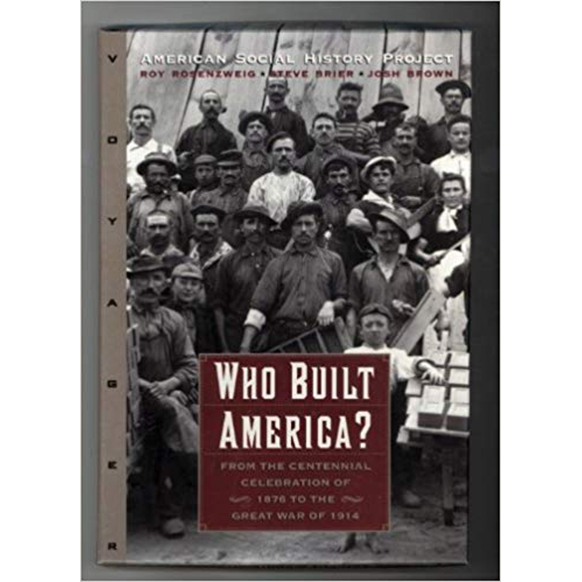
Who built America?
Stephen Brier
Learn Technologies Interactive, 1995
From the Centennial Celebration of 1876 to the Great War of 1914. Based on a definitive two-volume history of the United Sates, “Who built America?” offers a whole new way to encounter history. Readers can discover how the text was woven from the threads of actual events by accessing some of the thousands of original source documents: audio, video, and text. Imagine not just reading about the invention of cinema but seeing “The Great Train Robbery” in its entirety, hearing a young boy’s searing account of a lynching in rural Florida in 1902, or watching suffragists march up Fifth Avenue. Coupling superb scholarship with the opportunity to move behind the printed pages, “Who built America?” delivers an impact and immediacy which transforms the study of history.
Gender at Work: The Dynamics of Job Segregation by Sex during World War II
Ruth Milkman
University of Illinois Press, 1987
By analyzing the process of work in both the electrical and the automobile industries, the supplies of male and female labor available to each, the varying degrees of labor-intensive work, the proportion of labor costs to total costs, and the extent of male resistance to female entry into the industry before, during, and after the war, Milkman offers a historically grounded and detailed examination of the evolution, function, and reproduction of job segregation by sex.
